Description
ABSTRACT
Patenting Inventions Generated by Artificial Intelligence: The Way Forward
Morris Kingsley Odeh*
In the last two decades, we have witnessed significant advancement in the development of Artificial Intelligence (AI) which has opened up unprecedented frontiers, accelerated disruptive innovations, solved complex problems, and reduced human efforts, in almost every industry. While the impact of AI on science and technology is still unfolding, there are currently cases where AI – with the aid of techniques such as machine learning, deep learning and neural networks – have independently generated inventions and have been named as inventors in patent applications. Ordinarily, these inventions should qualify for patent protection. However, the current patent laws world over only contemplate natural persons as inventors. This article will examine whether AI-generated inventions will be able to satisfy the fundamental patent requirements of ownership, non-obviousness, patentable subject matter and disclosure, and the difficulties patent offices will and are facing with the advent of AI-generated inventions. Finally, the article will proffer a way forward on patenting AI-generated inventions by suggesting that the developer or programmer of the machine be recognized as the inventor, the prior art should be the field of technology where the AIgenerated invention is connected with, the PHOSITA should be a trained AI model, and a detail description of the relevant training data and algorithms should be sufficient
disclosure.
Keywords: Patent, Artificial Intelligence, Invention, Patent Office, Algorithms, Intellectual Property Law.
INTRODUCTION
Artificial Intelligence (AI) has come to be recognised as a very vital technology of the twenty-first century. It is now increasingly being used in many aspects of our lives, from autonomous vehicles to medical diagnosis, telecommunications, language translation and advanced manufacturing.1 Just as the discovery of steam engine triggered the first industrial revolution – because of its profound effect on the human muscle, AI will certainly spearhead the fourth revolution – because of its remarkable effect on the human brainpower.2 In the past, AI was considered as a mere fiction, but with the advancement in science and technology, there are now machines that can perform surgeries, fly airplanes, drive cars, manufacture drugs, create artworks, and play games with little or no human intervention.
* LLB, BL. ACIArb, Associate with Aluko & Oyebode, a top full-service commercial law firm in Nigeria. He can be reached through om*************@***il.com or +2348162981337. I am grateful to my senior colleague Edafe Ugbeta and members of The Gravitas Review Team for their kind review and insightful comments.
- Intellectual Property Office- Economics Research and Evidence team, Artificial Intelligence: A Worldwide Overview of AI Patents and Patenting by the UK AI Sector accessed 13 February 2020.
- A Bernstein and A Raman (2015) citing ‘The Great Decoupling: An Interview with Erik Brynjolfsson and Andrew McAfee’ [1993] Harvard Business Review 66-74 cited in Pepe Strathoff, ‘Managing a Cyborg: Managing Oneself, a Transhumanist Perspective on Human-centered Management‘ (7th Global Drucker Forum) 2 accessed 13 February 2020.

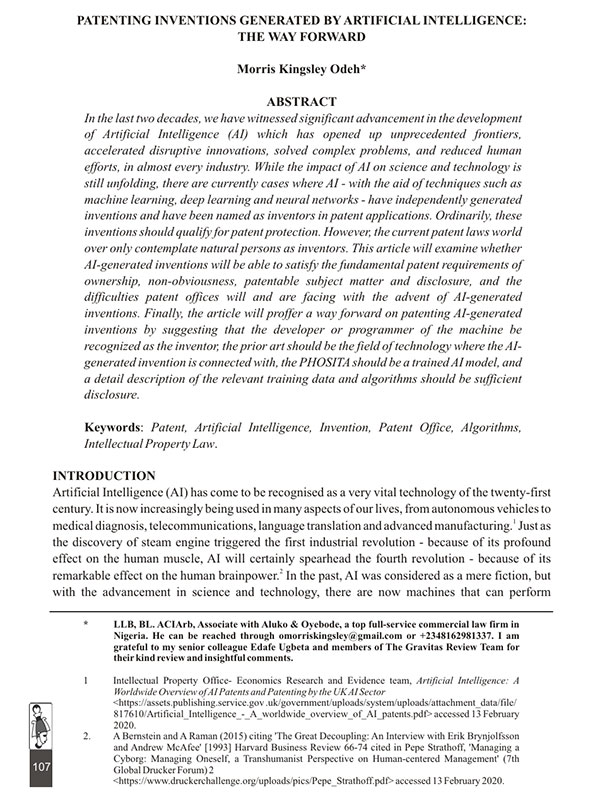
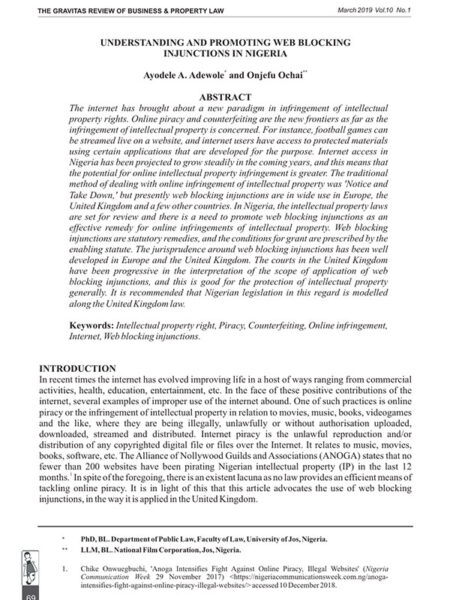
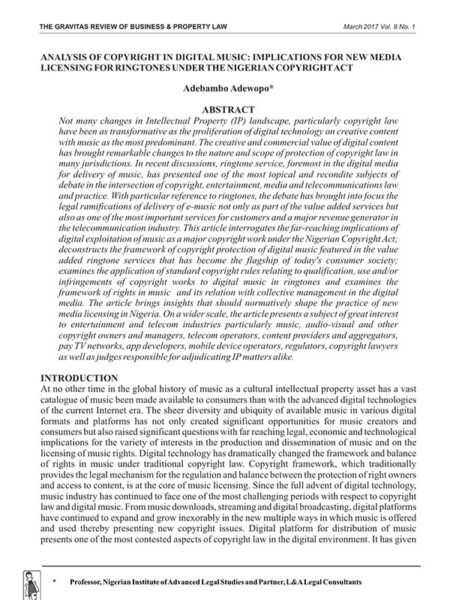
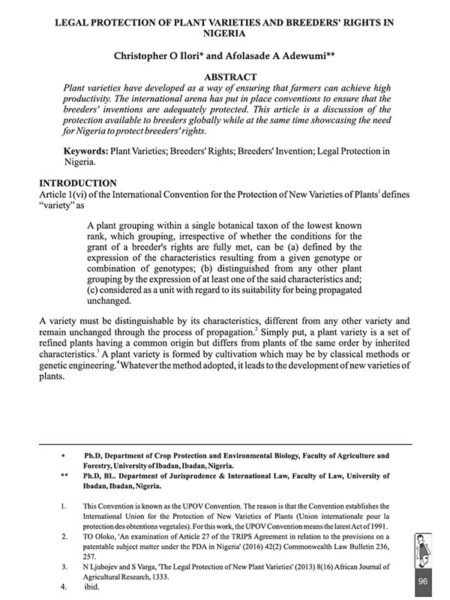
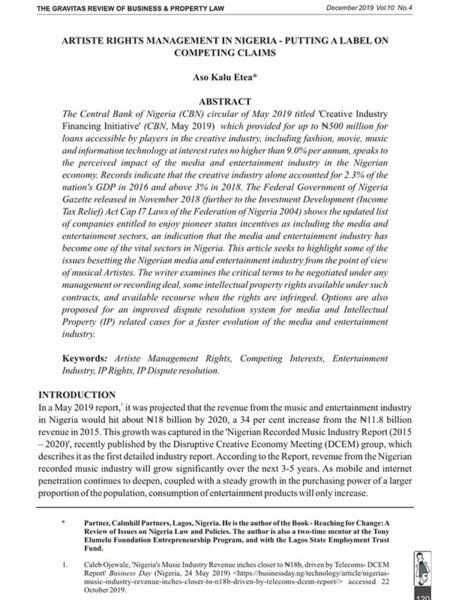


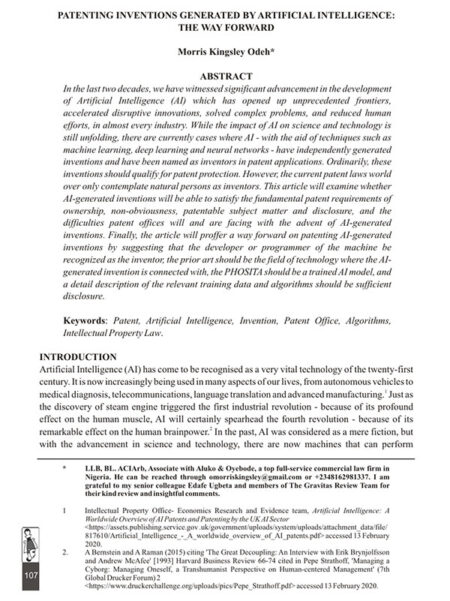
Reviews
There are no reviews yet.